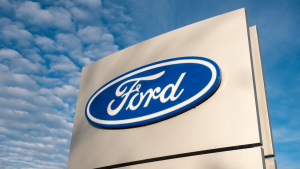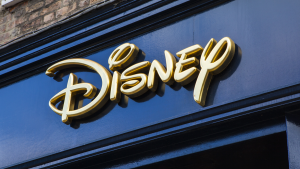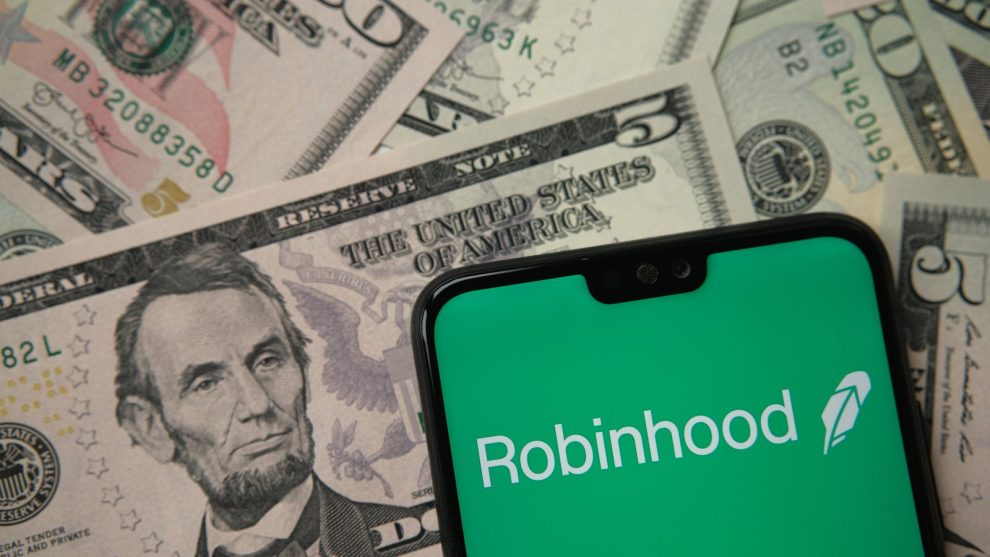
Being dynamic in stock market investing is crucial, especially given the recent vibrancy of online platforms. Platforms such as Robinhood Markets (NASDAQ:HOOD), among others, wield significant influence over stock market trends. With more than 11.9 million on its platform, it has the power to create unique opportunities and risks for its growing user base. Hence, investors must keep tabs on the most undervalued Robinhood stocks, potentially offering robust long-term gains.
The Robinhood Investor Index tracks the performance of the top 100 most trending investments on the Robinhood platform. It factors in customers of all pocket sizes to effectively ensure equal representation. To no one’s surprise, its user base is mostly invested in tech and consumer durables. Moreover, 80% of those investments are in large caps, so you will likely see many of the usual suspects on their top 10 list. That said, three of the most undervalued Robinhood stocks are part of its top 10, offering tremendous upside ahead.
Amazon (AMZN)

Online retail giant Amazon (NASDAQ:AMZN) is arguably one of the more low-key members of the “Magnificent Seven” stocks. Though it doesn’t attract the same media buzz as other “Mag 7” stocks, it packs the biggest punch. Its recent quarterlies have been stunning, outpacing top-and-bottom-line results in the past five consecutive quarters. Moreover, with 29 upward EPS revisions for the upcoming quarter, there are still plenty of surprises in store.
Amazon released another smashing earnings report late last month, crushing top-and-bottom-line estimates across both lines with considerable aplomb. Revenues were up 13% year-over-year (YOY) to $143.3 billion, while its EPS of 98 cents beat estimates by a comfortable 15 cents. Amazon’s cloud computing segment in AWS was the star of the show again, growing at a quicker pace than the overall business at 17%. Additionally, results from domestic e-commerce and digital advertising were also impressive.
The integration of generative AI with AWS has been a boon for Amazon, and with a ramp-up in capital expenditures, cloud-based AI demand will continue soaring for the foreseeable future. Despite its stellar run-up last year, AMZN stock still offers an 18% upside from current price levels based on consensus analyst estimates.
Ford Motor (F)

Ford Motor (NYSE:F) is one of the oldest in the automotive sector, poised for a roaring comeback later this year. Like its peers, it operates in a highly unconducive business environment. On top of that, it had to contend with the testy United Auto Workers (UAW) strike last year, adding to its woes.
Consequently, it lagged major indices last year, but we’ve seen an excellent turnaround in the past six months. For perspective, F stock is up 21.4% in the past six months, compared to the S&P 500’s 17% gain.
However, despite those encouraging gains, F stock still trades under 0.30 times, 68% lower than the sector median. On a forward cash flow basis, the stock trades 60% behind the sector median. Additionally, Wall Street analysts assign a ‘moderate buy’ rating to the stock, offering at least a 22% upside from current prices. Hence, it provides a more attractive alternative to many pricey EV stocks. Its hybrid strategy has paid many dividends in the current economic climate, while its domestic EV sales continue to impress on-and-all.
Walt Disney Co. (DIS)

Fresh off a proxy battle win against billionaire investor Nelson Peltz, Walt Disney Co. (NYSE:DIS) CEO Bob Iger has much to prove to its investors. Peltz criticized Iger’s lackluster financial management, unreasonably high executive compensation, and Disney’s stock market slump. These arguments have a lot of truth, as shown by the company’s operational struggles in recent years.
Following the win, though, we’re seeing Iger adopt a more aggressive stance in turning things around for Disney. Particularly in its efforts to revitalize its entertainment division, Iger announced the firm will limit its output to no more than three Marvel films and up to two Disney+ shows per year.
Moreover, Iger will emphasize profitability for Disney’s streaming division. The segment turned a profit in the first-quarter (Q1), and the company expects full-streaming profitability by the end of the year. Additionally, the company has joined hands with Warner Bros. Discovery (NASDAQ:WBD) to effectively unlock new bundling opportunities. Few would dispute that combining Disney+, Hulu, and Max creates a compelling entertainment package.
Disney attracts a commanding ‘strong buy’ rating from Wall-Street, a 27% upside from current prices.
On the date of publication, Muslim Farooque did not have (either directly or indirectly) any positions in the securities mentioned in this article. The opinions expressed in this article are those of the writer, subject to the InvestorPlace.com Publishing Guidelines.





